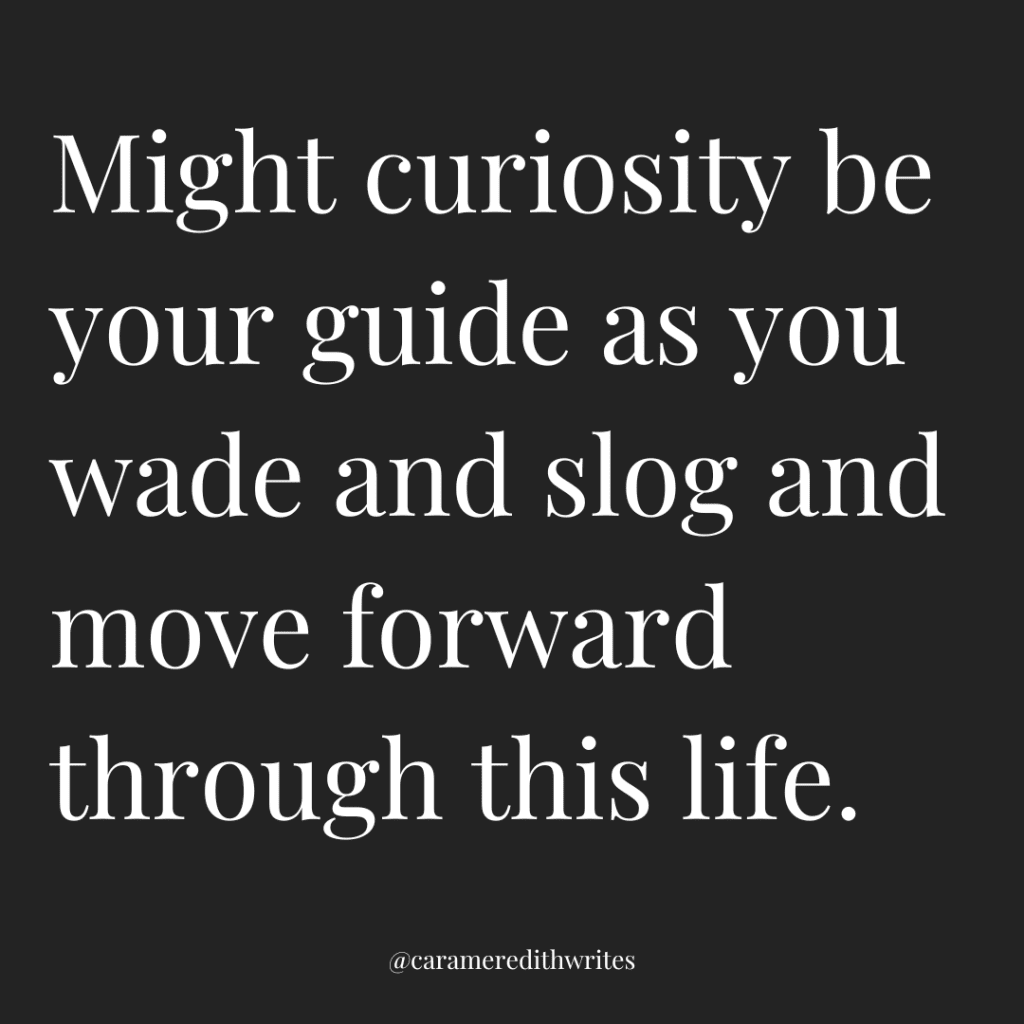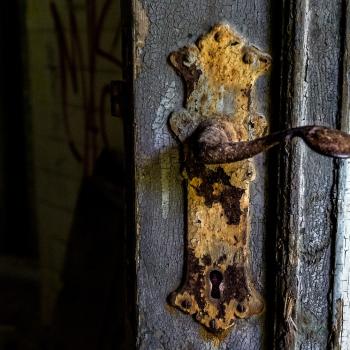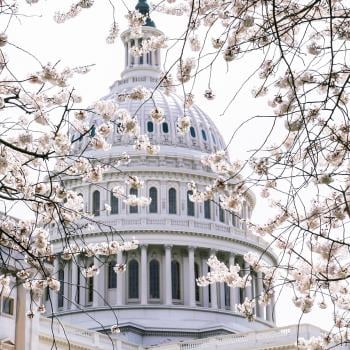What are we to do with the natural shoulds that often accompany life?
You should be kind to other people. You should eat the food your mama serves you. You should strive to do your best, to limit screen time, to breathe in nature whenever possible. You should eat a healthy diet. You should work hard. And according to Scripture, you should love the Lord your God with all your heart, soul, mind, and strength. And also love your neighbor as yourself.
The list goes on, because as luck would have it, a fair amount of should nots also accompany this thing called life.
You should not murder people. You should not covet anything that belongs to your neighbor, so says the Ten Commandments, and while you’re at it, you also shouldn’t lie or steal. Again, we could go on (with the six other commandments not named), and with even more general shoulds to follow, depending on the culture and families and neighborhoods we call our own.

And what of the obvious should nots found in this week’s gospel reading?
You should not be an evil king (named Herod) who orders all the children under two, in and around Bethlehem, to be killed. Even if you’re a faithless tetrarch, you should probably not leave your wife to marry your brother’s wife. Whatever the title you wear, when you throw yourself a birthday party, you shouldn’t get drunk and invite your stepdaughter to dance for the guests – and then be so pleased by the performance that you promise to give your stepdaughter anything she wants, including the head of the one who came before Jesus, John the Baptist. As such, so as not to lose face in front of your guests, you should probably not also keep the promise and order the execution of the one who cried out in the wilderness and subsequently have his head delivered on a platter before the party is said and done.
Adding this to the general list of should nots is not a hard ask. Pointing this out doesn’t make reading the passage any easier, in fact, at least to me, it makes it even more confusing.
But as I sat with the passage this last week, I kept coming back to the first two verses – verses that take place in the present-tense, before a flashback of the whole beheading scene comes into play.
“King Herod heard of it,” the author Mark writes, “it” being that people are beginning to hear and see and talk about a man named Jesus. Earlier in the chapter, he is called a prophet; he lays his hands on sick people and heals them, even if they lack the faith to respond to him. He goes around, “teaching from village to village,” then sending out twelve men to do as he’s done – to live simply and also tell stories about what it means to turn around and change course. Because of him, the disciples drive out demons and anoint sick people with oil and heal them.
Of course Jesus’s name would start to get around. Of course Herod would wonder if Jesus is a prophet or Elijah, or even go so far as to arrogantly declare that “John, whom I beheaded, has been raised.”
Herod may have been a failed follower of Jesus, but I’ve no doubt he still found himself curious about the Son of Man at some point. How then might curiosity play a role in the life of faith? How might we recognize curiosity as a love language that points us to deeper realities of God’s kingdom?
If you haven’t recently been around a child lately, children are innately curious. A couple of weeks ago, my younger son lugged a cookie sheet, a plastic bowl, a box of baking soda, a jug of white vinegar, and various accoutrements from the kitchen and dining room out to our front porch. With my permission for this science experiment, he began mixing and matching different ingredients – mostly to see if he could get a (literal) bubbly, overflowing reaction, but also to find an answer to each of the “I wonder…” statements he uttered from the ledge of our hundred-year-old craftsman.
While I don’t remember the specifics of his experiment, I do remember that curiosity ceased him in that moment. Was it not any different for Herod, even if only for a split second or two, when he too wondered about the man named Jesus?
“Who is this King of glory?” I wrote in the margins of the Markan text – words echoed from this week’s psalm, when David asks the same question before quickly delivering an answer: This King of glory is the Lord, strong and mighty, the Lord, mighty in battle.
It makes me wonder whether Herod may have been asking that question too, and as it goes, whoever we are, however we find and identify ourselves on the other side, it makes me wonder what it means to approach Jesus with curiosity, perplexity, and maybe even fascination. Perhaps like Herod, we can get stuck and therefore not move the needle when it comes to wondering who this king is, failing to cross over from spectatorship to discipleship – or we can instead really, truly follow in the ways of Jesus, which is to say, in the way of truth and peace, of justice and love.
We can, I suppose, embrace curiosity.

In writing this sermon, I came across a prayer of blessing from United Methodist pastor Minoo W. Kim who invited his community to acknowledge and encourage the God-given gift of curiosity, rather than suppress it.
Whether you yet see the spark of curiosity within ourselves or in others, might you receive this blessing over yourself today:
Blessed are those who doubt, search, and seek the truth, he said.
Blessed are those who ask hard questions with no easy answers, he went on.
Blessed are those who wrestle with the paradoxes of faith.
Blessed are those who welcome the nuances of life.
Blessed are those who admit they don’t have all the answers.
Blessed are those who are willing to learn something new.
Blessed are those with childlike imaginations, who perform science experiments on the front porch, I might add, and begin sentences with “I wonder…”
Blessed are the dreamers.
Blessed are the peacemakers.
Blessed are those who welcome new adventures despite risks.
Blessed are the curious.
As you step into this week, might you be struck by a holy kind of curiosity – about your neighbors and about your fellow parishioners. About the world around you and about the God who loves you with holy abandon. About all the shoulds and the should nots, and about your response as one who follows in the ways of Jesus along the way.
Might you take these musings and wrestle with them, even as seemingly ill-fitting gospel passages cross your path, even as dear ones named Dawn are taken from this earth too soon, even as it feels like violence has taken reign in our cities and our country.
Might curiosity be your guide as you wade and slog and move forward through this life.
—
This sermon was offered to the good people of St. Paul’s Episcopal Church in San Rafael, California on July 14, 2024. If you liked it, do check out this sermon too!













